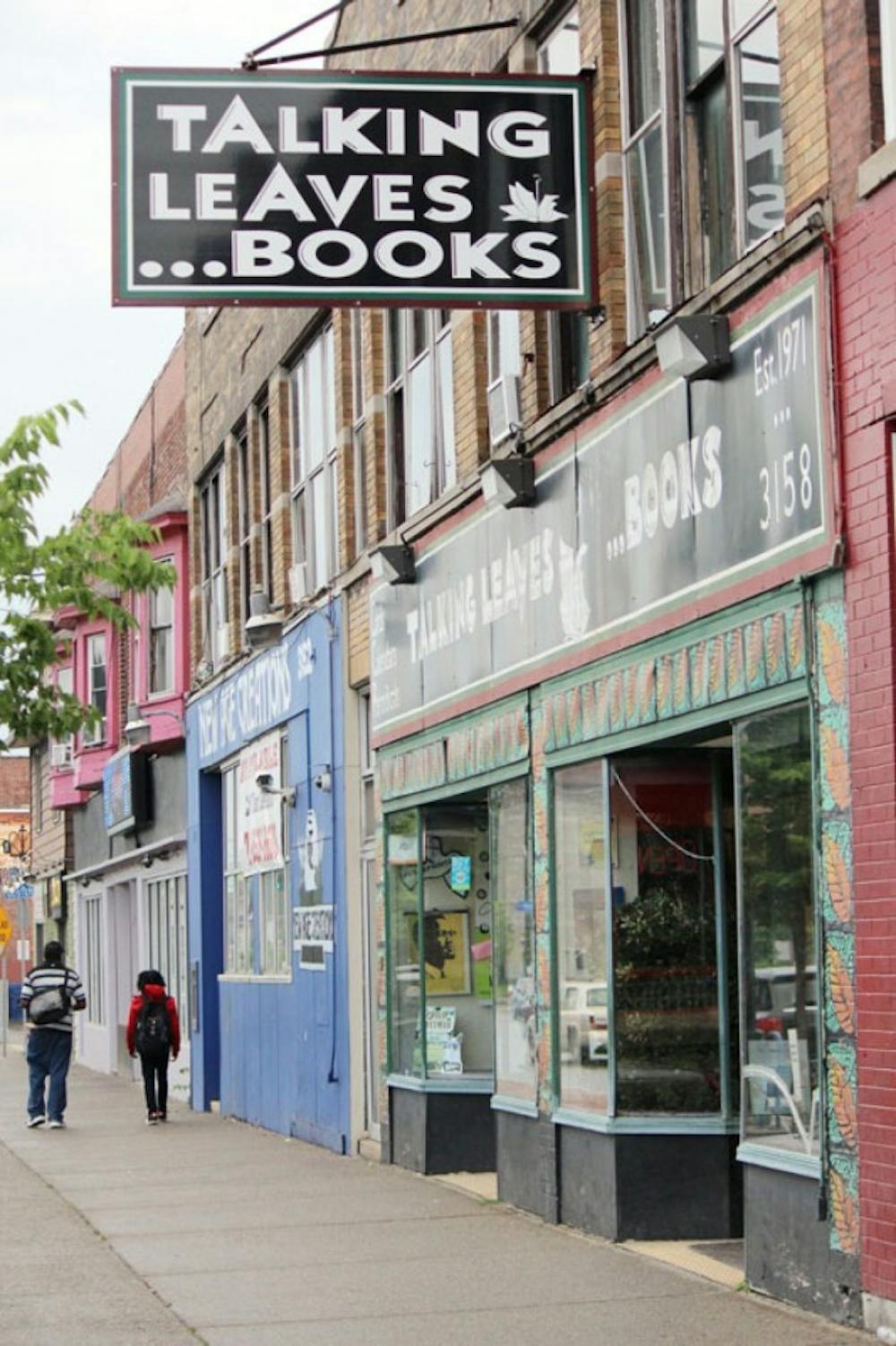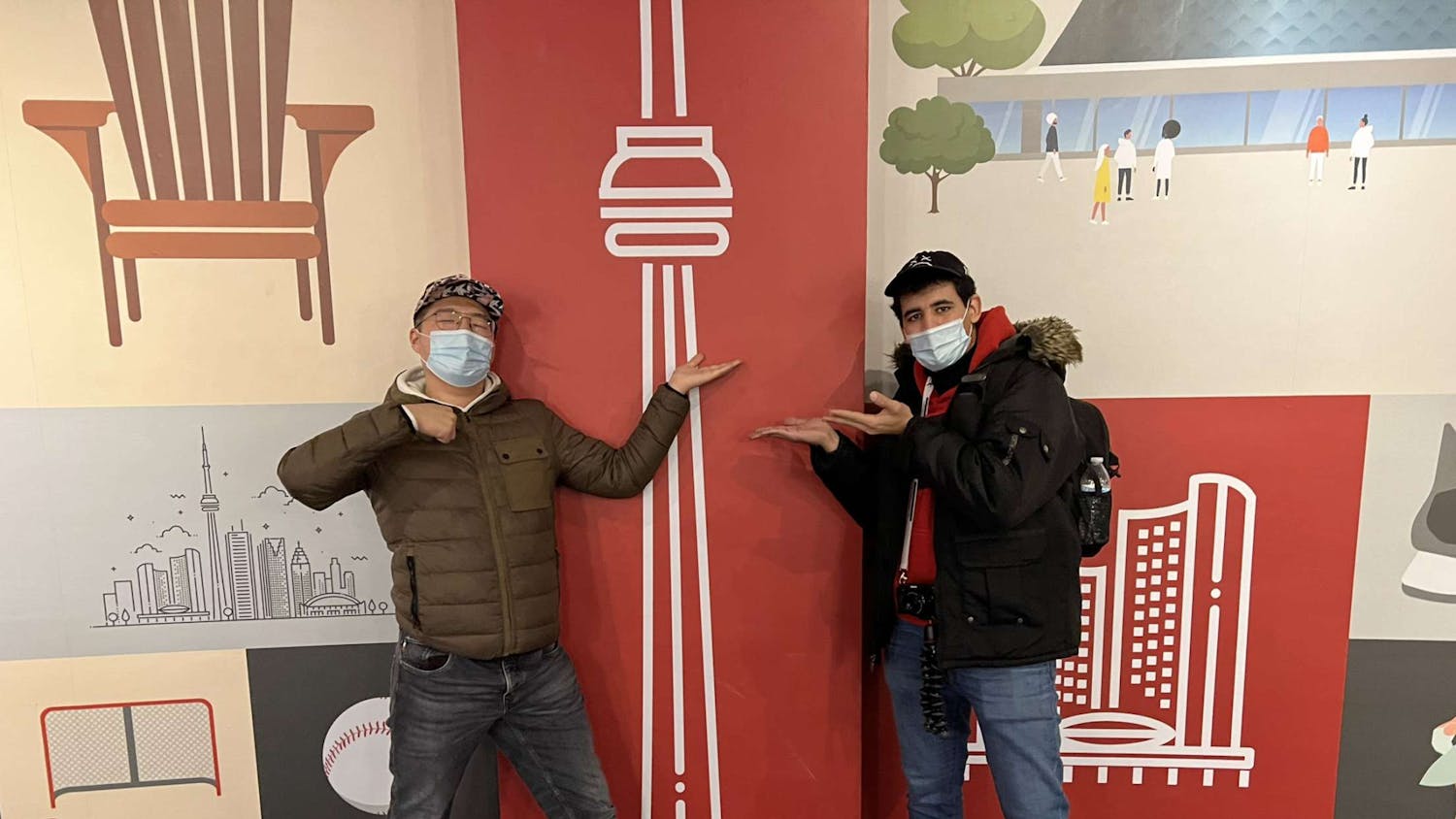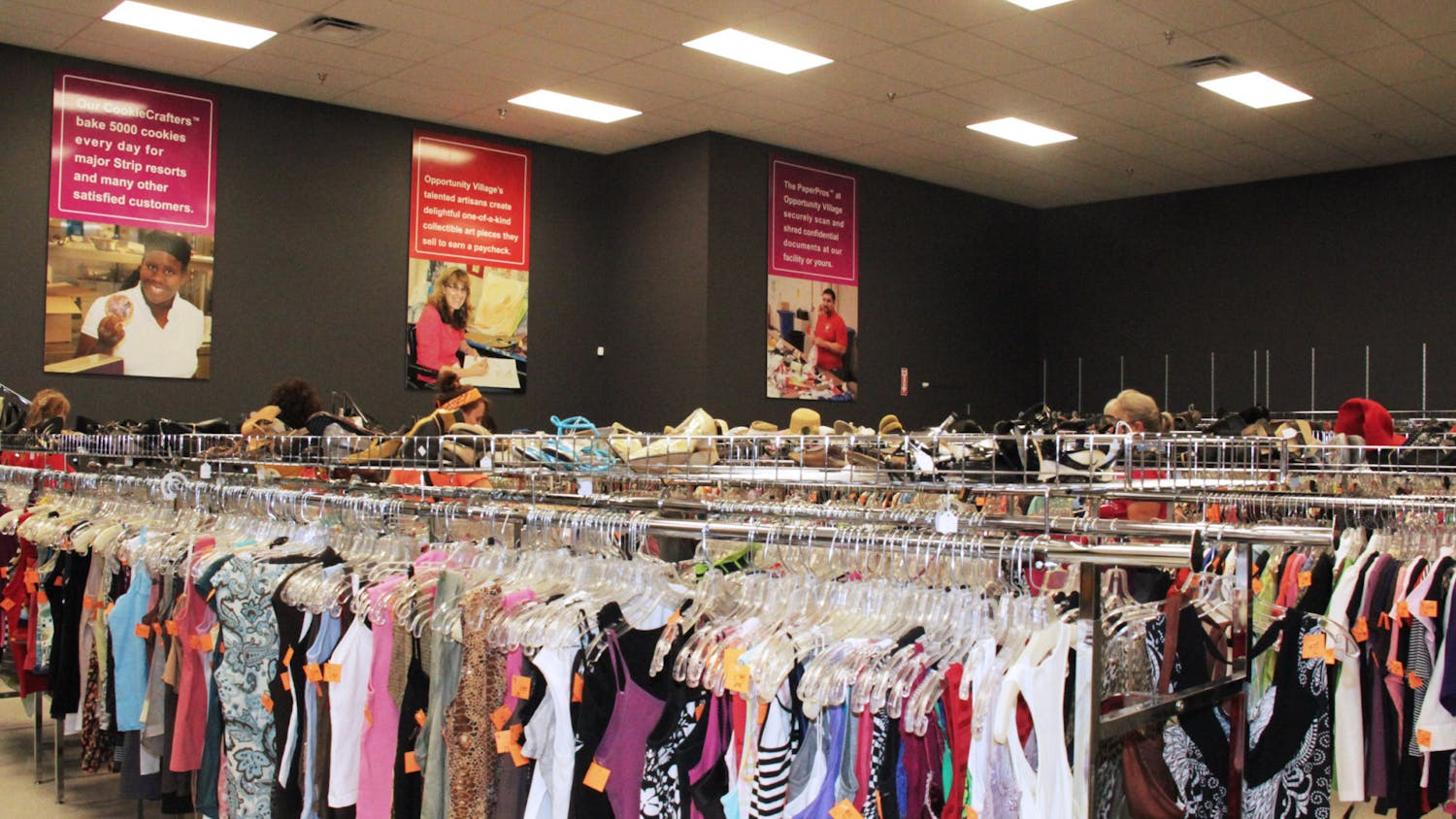Jonathan Welch took a leave of absence from UB’s English Ph.D. program in 1975.
He never went back.
Welch had completed five semesters in the Ph.D. program when he left to run Talking Leaves Books. He expected the venture to last only one year.
But he fell in love with the business. It’s been almost 40 years and now, Talking Leaves Books has two locations: in the Elmwood Village and on Main Street near South Campus. It remains among the few local, independent bookstores in Buffalo.
It has not been easy to stay in business, according to Welch. He said increasing consolidation in the book selling and publishing business – along with advancing technology – threaten his stores’ survival. Despite the modern setbacks of running a small business, Welch developed strategies that are the keys to making his bookstores to thrive.
“It’s been an uphill battle,” Welch said. “We’ve been fighting a sort of negative trend.”
Whereas large corporations rely on marketing to draw in customers, Welch said marketing is only a minor part of the store’s success. Welch does not invest in a lot of marketing. He advertises in Buffalo’s weekly alternative newspaper, Artvoice, networks through social media and distributes occasional newsletters.
“We don’t have the resources to do major advertising or marketing pushes, and little faith that the cost-benefits are there to make it worthwhile,” he said. “We rely mostly on word of mouth and our existing relationships to try to keep people informed of our existence and what we’re doing.”
Welch explained the main difference between chain bookstores and Talking Leaves is customer involvement. In chain bookstores, a few executives buy all the books. At Talking Leaves, Welch does most of the buying and he frequently receives suggestions from customers and staff. As a result, the 75,000 titles on the shelves represent an array of tastes and interests.
“In a weird way, it’s more democratic,” Welch said.
Most chain bookstores purchase their books from a few publishing companies that control 80 percent of the publishing industry, according to Welch. As a supporter of small business, Talking Leaves purchases books from smaller publishing companies that comprise “the other 20 percent.”
Steve McCaffery, UB professor and English department chair, also believes supporting independent business is important.
“I think what we’re suffering from now is the takeover from big conglomerates like Barnes & Noble,” McCaffery said. “And even they’re being threatened by monsters like Amazon.”
Antara Majumdar, a freshman biomedical science major, noticed Talking Leaves’ unique selection of books on her first visit.
“I find the bookstore has a lot of uncommon books by a lot of unconventional authors,” Majumdar said. “It’s not like Barnes & Noble which is just geared towards the bestselling [books]."
After skimming through the shelves, she purchased a poetry book written by rural villagers in India. Majumdar recommended all UB students visit the store at least once.
Welch jokingly described the typical customer as, “anyone who loves books enough to buy them.”
Even though the store seeks to cater to a broad audience, it also strives to maintain a sense of alternativeness. Welch believes his purchasing choices contribute to this reputation. He aims to house books that are unique and marketable, which he said is a difficult feat.
“It’s not an art or a science,” Welch said. “It’s kind of like a poker game.”
So far, the store is winning, according to Welch.
Welch believes Talking Leaves’ success lies in its ability to intellectually engage with the community and serve a diverse population. For example, when the store opened in the 1970s, it housed sections on controversial topics such as Women’s Studies, African American Studies, Native American Studies and LGBT Studies.
One particularly controversial choice came in 1989 when Salman Rushdie, a popular British Indian novelist, challenged Islam in his novel, Satanic Verses. In response to the work, Ayatollah Khomeini, who was the leader of the Islamic Republic of Iran, issued a fatwa ordering Muslims to kill Rushdie. Welch said that closely following Khomeini’s announcement many mainstream bookstores pulled Rushdie’s Satanic Verses off their shelves.
Talking Leaves, however, continued to stock it.
Today, Welch serves on the board of directors for the American Booksellers Foundation for Free Expression (ABFFE). ABFFE works with groups such as the National Coalition against Censorship and the Media Coalition to respond to infringements on freedom of expression such as censorship and book banning. As a local bookstore with a national voice and a stake in political issues, Talking Leaves defines success not only through profit, but also through empowerment.
“Books are a source of power,” Welch said. “We want to help people get to that place where they can recognize that.”
Welch also believes “building a business is a process of building relationships,” and the store’s survival is dependent on community engagement. Throughout the school year, it hosts multiple book fairs and readings at several schools in the Buffalo Public School District.
Talking Leaves also maintains long-term relationships with organizations such as Just Buffalo Literary Center. In 2007, Talking Leaves’ program director, Mike Kelleher, initiated Just Buffalo’s international author lecture series, Babel. This series has included authors like Salman Rushdie and Nobel laureate V.S. Naipaul. Today, Talking Leaves serves as the official bookseller and sponsor for the series.
Welch said Talking Leaves’ goals are to nurture literacy and an appreciation for thought-provoking texts. He said the store boasts one of the largest collections of poetry for an independent bookstore in the United States.
Talking Leaves also stocks a selection of pop-culture books, such as the Twilight series, because Welch said the store is not “immune to the tides of popular taste.”
“Good bookstores are little whirlpools where the various cultural streams come together and get all mixed up, mostly in a good way,” he said.
He says that small businesses like Talking Leaves are what give Buffalo its character. Welch explains that standardized places do not give a town character and vibrancy. Towns, he says, are defined by the places where people have their roots.
Talking Leaves succeeds in its business not because it caters to mainstream ideals, but because it preserves Buffalo’s roots and contributes to the community’s development.
“What we are is specific to where we are,” he said. “I could do a store somewhere else, but it wouldn’t be the same.”
Community engagement is not a one-way street, though.
For the store to remain successful, according to Welch, people need to understand and appreciate the role of small business in preserving a sense of community and shared history. Welch believes individuals must see themselves as empowered agents of change.
“People complain about the ways that their towns are changing and they sort of think that that’s a process that they have no control over,” he said. “Yet the reality is that if you choose to shop here rather than at Barnes & Noble or online, you’re making a decision that actually does have an impact on the community.”
email: features@ubspectrum.com





